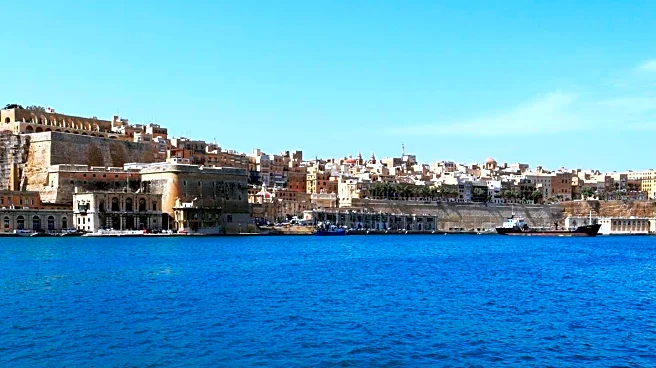What's Happening?
Malta and Italy are highlighted as prime destinations for winter escapes, offering a blend of rich history and tranquil getaways. Valletta, Malta's capital, is noted for its 16th-century architecture,
providing a peaceful atmosphere for winter visitors. Rome, Italy, offers iconic landmarks with fewer crowds during the winter months, making it ideal for relaxed exploration. These destinations provide affordable and accessible options for travelers seeking cultural enrichment without the summer rush. The article emphasizes the appeal of European city breaks for quick vacations, allowing travelers to experience new cultures and historical sites.
Why It's Important?
The promotion of Malta and Italy as winter destinations highlights the potential for tourism to thrive outside peak seasons. This can benefit local economies by attracting visitors year-round, reducing the impact of seasonal fluctuations. The focus on cultural and historical attractions underscores the importance of preserving heritage sites and promoting cultural tourism. Travelers gain the opportunity to explore these destinations in a more relaxed setting, enhancing their experience and appreciation of the local culture. The emphasis on affordability and accessibility makes these destinations appealing to a broader audience, potentially increasing tourism revenue.
What's Next?
As winter approaches, tourism agencies and local businesses in Malta and Italy may ramp up marketing efforts to attract visitors. This could include special promotions and packages tailored to winter travelers. The focus on cultural and historical attractions may lead to increased investment in preserving and promoting these sites. Additionally, the success of winter tourism could encourage other destinations to develop similar strategies, diversifying their offerings and extending their tourist seasons. The trend towards off-peak travel may influence broader industry practices, encouraging sustainable tourism development.
Beyond the Headlines
The emphasis on winter travel to Malta and Italy reflects broader trends in tourism, where travelers seek authentic and enriching experiences. This shift may lead to increased demand for cultural and historical tourism, prompting destinations to invest in preserving their heritage. The focus on affordable travel options highlights the growing importance of accessibility in tourism, ensuring that diverse groups can enjoy these experiences. The trend towards off-peak travel may also contribute to more sustainable tourism practices, reducing the environmental impact of concentrated tourist activity during peak seasons.










